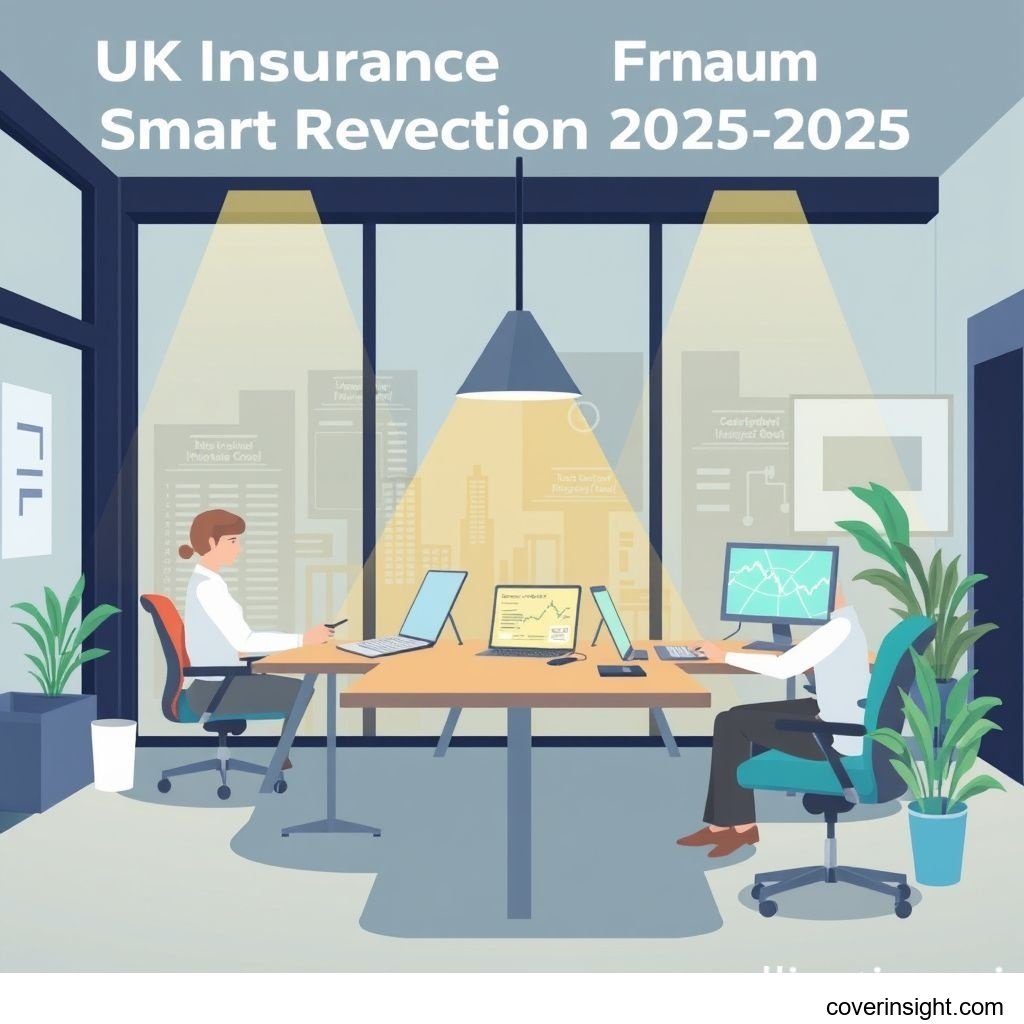Introduction
As we look towards 2025, the UK insurance industry is sharpening its focus on fraud prevention initiatives across Great Britain. This isn't just about catching criminals; it's about safeguarding the integrity of the insurance system for everyone and ensuring that honest policyholders aren't footing the bill for fraudulent activities. The sheer scale of insurance fraud has long been a thorn in the industry's side, leading to higher premiums and a loss of trust. Therefore, smart prevention strategies are no longer a luxury but a fundamental necessity for a resilient and fair insurance landscape.
Coverage Details
What’s Included
Smart prevention in 2025 encompasses a multifaceted approach, leveraging advanced technologies and collaborative efforts. At its core, this includes sophisticated data analytics, artificial intelligence (AI), and machine learning to identify patterns and anomalies indicative of fraudulent behaviour. Insurers are investing heavily in these tools to detect everything from 'crash for cash' schemes and 'ghost broking' to complex application fraud and exaggerated claims. Furthermore, there's an increased emphasis on intelligence sharing among insurers, facilitated by bodies like the Insurance Fraud Bureau (IFB), to tackle organised criminal networks head-on. These initiatives are designed to protect the vast majority of honest policyholders from the detrimental effects of fraud. For a broader perspective on these efforts, explore our Insurance Resources Global page.
Common Exclusions
While smart prevention is comprehensive, it's important to understand its boundaries. These initiatives primarily target deliberate, criminal acts of fraud. They are not designed to cover genuine errors, accidental misrepresentations, or misunderstandings on the part of the policyholder, provided there was no intent to deceive. The focus remains squarely on the malicious intent to defraud. Insurers will always differentiate between an innocent mistake and a calculated attempt to gain financially through illicit means.
Cost Analysis
Price Factors
The investment in cutting-edge fraud prevention technology, highly skilled data analysts, and collaborative intelligence networks certainly comes at a cost. Factors influencing this price include the sophistication of AI and machine learning models, the extent of data integration across the industry, ongoing training for fraud investigators, and compliance with evolving regulatory standards set by bodies like the Financial Conduct Authority. However, this expenditure is largely seen as a necessary cost of doing business, aimed at ultimately reducing far greater losses from fraudulent claims.
Saving Tips
Paradoxically, these prevention costs lead to significant savings. By effectively detecting and deterring fraud, insurers reduce the number and value of fraudulent payouts. This efficiency can translate into more stable, and potentially lower, premiums for consumers in the long run, as the burden of fraud on the collective pool is lessened. For instance, the Association of British Insurers reported that insurers detected over £1.1 billion in insurance fraud in 2022. Without such robust prevention efforts, this massive sum, and more, would ultimately trickle down to honest policyholders through increased costs. Therefore, investing in prevention isn't just about catching crooks; it's about protecting everyone's wallet.
FAQs
How much do fraud prevention initiatives cost? The exact industry-wide cost of fraud prevention initiatives is not publicly disclosed as a single figure, as it encompasses technology investments, personnel, and operational expenses across numerous insurers. However, it runs into hundreds of millions of pounds annually. This substantial investment is justified by the even greater sums saved by preventing fraudulent claims, which, as noted by the Association of British Insurers, regularly exceed a billion pounds a year in detected fraud alone.
What affects premiums? Insurance premiums are influenced by many factors, including the type of coverage, your individual risk profile, and broader market conditions. Crucially, the prevalence of fraud significantly impacts premiums. When fraud is rampant, insurers have to factor in higher potential payouts, which inevitably pushes up costs for all policyholders. Effective fraud prevention helps stabilise or even reduce premiums by minimising these unnecessary payouts.
Is it mandatory? For insurers, implementing robust fraud prevention measures is essentially mandatory due to regulatory expectations from the Financial Conduct Authority and the competitive need to manage risk and protect profitability. For consumers, while participating in specific initiatives isn't mandatory, providing accurate information and cooperating with legitimate fraud investigations are part of their policyholder obligations.
How to choose? When it comes to fraud prevention, you don't "choose" an initiative directly. Instead, you choose an insurer. Look for providers with a strong reputation for ethical conduct and a clear commitment to tackling fraud. These are often the insurers who are transparent about their efforts and contribute to industry-wide initiatives to combat organised fraud. For more on finding the right fit, visit our GB Insurance Home page.
Consequences of not tackling fraud effectively? If fraud were left unchecked, the consequences would be severe. Premiums for honest customers would skyrocket, potentially making insurance unaffordable for many. The financial stability of insurers could be compromised, and public trust in the insurance system would erode. Ultimately, it would create a system where law-abiding citizens subsidise criminals, which is "a different kettle of fish" entirely from what a fair insurance market should be.
Author Insight & Experience
As someone living in GB and having observed the evolution of the insurance sector, it's clear that the leap in fraud prevention technology isn't just about big data and AI; it's a critical step towards re-establishing faith in a system that sometimes feels like "penny plain and tuppence coloured" depending on your experience. Based on my observations, the more transparent insurers are about their efforts to combat fraud, the more trust they build with their customer base. It's heartening to see the industry "keeping a watchful eye" over its practices, ultimately benefiting us all by striving for a fairer, more secure insurance landscape.
Further reading: Insurance Resources Global
Further reading: GB Insurance Home







Comments